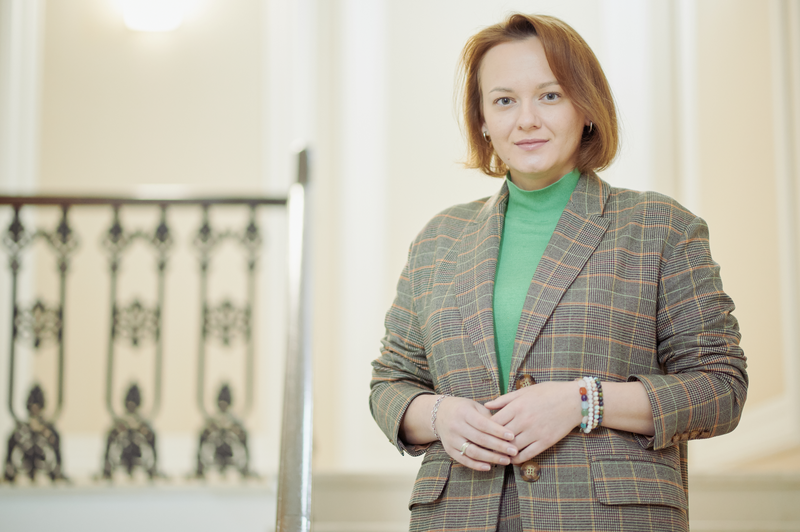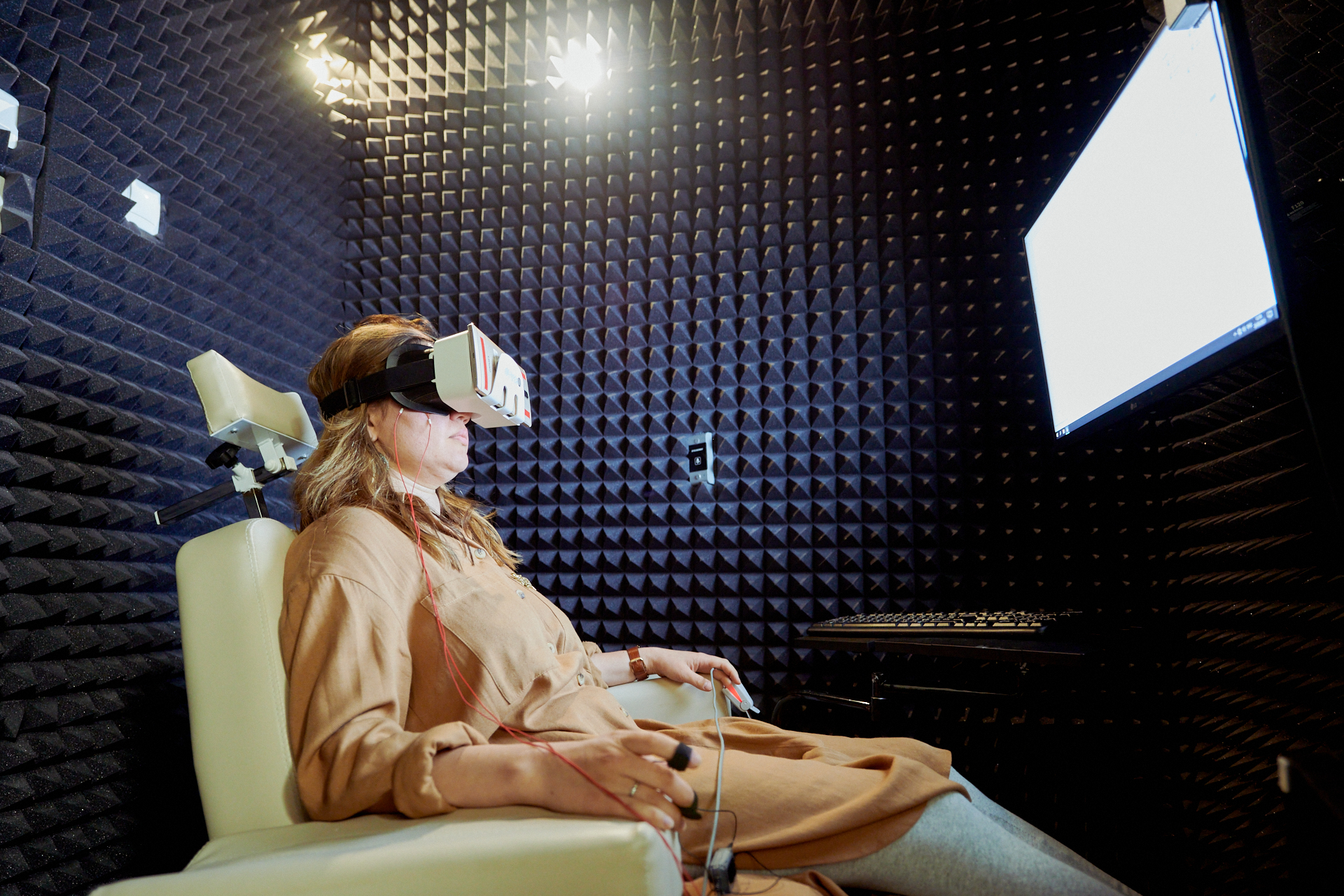Strategic Projects: Producing Scientific Results of Public Relevance

About a year ago, HSE University was among the first group of Russian universities to receive a grant from the ‘Priority 2030’ Strategic Academic Leadership Programme and began implementing strategic research projects. HSE University recently defended its report before the programme's board. Elena Odoevskaya, HSE University Vice Rector and coordinator of the HSE Development Programme for the Period until 2030 and the ‘Priority 2030’ programme, spoke to the HSE News Service about what has been achieved this year and how the format of strategic projects is changing at the university.
— How and why did strategic projects come about at HSE University?
— As part of the HSE Development Programme for the period until 2030, we have begun to transform our research work into a new format of large interdisciplinary full-cycle projects with economic, social and scientific significance.
— Once the HSE Development Programme was adopted, the university became a participant in the ‘Priority 2030’ Strategic Academic Leadership Programme. Was the result a collaboration between the two programmes?
— Yes, together they form part of our integrated development programme. The goal of ‘Priority 2030’ is to form a broad group of leading universities in Russia by 2030—centres of scientific, technological and socioeconomic development for the country. In alignment with the format of the ‘Priority 2030’ programme, we have formed five strategic projects that focus on people and their needs in a changing world: ‘Human Success and Autonomy in a Changing World’, ‘Social Policy for Sustainable Development and Inclusive Economic Growth’, ‘National Centre for Science, Technology and Socio-Economic Forecasting’, ‘Digital Transformation: Technologies, Effects, Efficiency’ and ‘Evidence-based Urbanism’.
— The university team recently presented the results of the ‘Priority 2030’ programme at a defence before the programme’s board. What was the focus of the defence?
— In presenting this year's results, we have focused on the specific effects for society, the economy and ultimately for each individual that have been achieved and that can be achieved as a result of the work of our researchers. Despite the first year being just a start-up period, we already have a number of interesting developments based on the groundwork available at HSE University.
Here are just a few examples: in the ‘Human Success and Autonomy in a Changing World’ strategic project, several projects in the next one to two years of implementation will be taken to the TRL 6-8 level (full-featured demos and prototypes working in real conditions, ready for subsequent scaling/production). These are tools to increase human resilience to the perception of fakes and deep fakes, as well as tools to assess the characteristics of human autonomy, and supra-professional skills.
HSE University in the ‘Priority 2030’ programme in 2021–2022
28 base chairs of Russian Academy of Sciences (RAS) institutions
30 mirror laboratories in partnership with regional universities
528 employees of Russian universities awarded internships at HSE University
200+ research and analysis projects commissioned by regional governments and businesses
15,000 network students and 43 universities
11 intellectual competitions involving 155,000 schoolchildren
496 partner schools
In 2022 the strategic project team at the ‘National Centre for Scientific, Technological and Socio-Economic Forecasting’ presented scenario analyses of socio-economic development, climate change, science and technology development based on big data analysis using the unique iFORA system.
Next year we aim to present an open database on sanctions, which will be constantly updated. Our colleagues have done a tremendous job in terms of systematising all the knowledge regarding the restrictive measures that have been imposed, as well as when and how they were intensified, right down to politicians' public statements on social media regarding the sanctions. This is an extremely useful tool for researchers, government representatives and the public.
The strategic project ‘Digital Transformation: Technologies, Effects, Efficiency’ provides an empirical basis for assessing the social effects of digital transformation and trends in the development of artificial intelligence.
Our insights into how technology is used by society and companies forms the basis of proposals for measures to support the IT industry.
A very promising area of this project is research into 6G networks.
— How are things with the ‘Evidence-based Urbanism’ strategic project?
— A year into the project, it has been shown that it is at a high level of readiness in terms of bringing technology to the market. Some of it has already been implemented in the work of city administrations. For example, the project has developed original transport modelling software, which is superior to foreign analogues in terms of functionality. Given the high degree of development of Evidence-based Urbanism, it was decided that this area will be further implemented as part of the University's research policy, but not as a strategic project; its team will continue to implement projects commissioned by industrial partners and government authorities.

— Will a new strategic project be created?
— Yes, we invited the programme board to support the strategic project ‘The Resilient Brain: Neurocognitive Technologies for Adaptation, Learning, Development and Rehabilitation in a Changing Environment’. The project will contribute to combating neurodegenerative diseases and mental disorders, addressing disability, and promoting active longevity. The project is expected to bring new products to the market quickly, for example in the field of personalised neuroprosthetics. It is worth mentioning that HSE University started developing the field of cognitive science quite a while ago.
Now, in 2022, there is not just a research unit within the university, but a globally competitive neuroscience research cluster.
Our colleagues are developing unique technologies; they have a substantial number of partnerships with medical organisations. We expect that specific technologies will be brought to market in the next two or three years of the project.
— Is the practice-oriented approach, involving external partners, one of the characteristics of the strategic projects?
— This is a conscious policy, because our task is to make sure that our research is full-cycle research—from the formulation of a hypothesis to a specific technology, prototype, or know-how. It is necessary for research to have a customer or consumer: an industrial partner, a specific company. In some cases, it’s HSE University itself, such as when we are talking about filling our educational products; or our founder, the Russian government, if we are talking about scenarios for the development of a particular industry. They can also be ordinary people for whom specific products are created. So our task is to provide a tool, a methodology, a development that will live on without us.
HSE Strategic Projects Today
60+ research projects
40+ faculties, labs, and centres
650 researchers
55% researchers aged 39 or younger
13 consortiums with other universities
— Are there any outside partner universities of the strategic projects?
— We have about 13 consortiums. For instance, one of our strategic projects has a consortium with Sechenov University—a leader in training for the healthcare and pharmaceutical industries—on foresight research in the field of drag design. The number of such consortia will continue to grow in future.
— Apart from the new ‘Resilient Brain’ strategic project, are there any other changes planned for HSE University's participation in ‘Priority 2030’?
—Like all higher education institutions, we need to rethink our international activities. To achieve this, we have decided to incorporate a new policy on the ‘Decolonisation of International Education: Expanding Spaces of Friendship and Mutual Trust’. We have already started creating an educational and research cluster in Eurasian integration, Oriental Studies and African Studies to win the battle for international talent. In doing so, HSE University will share its experience in international communication with other universities.

This year, as you know, we were also faced with the withdrawal of global educational platforms, such as Coursera, from cooperation with Russian universities. This is a serious challenge because, for example, HSE University had a base of around two million participants in our courses there, and this was effectively cancelled. But we supported all those who studied with us, for example, in the online master's programme: they are now studying on our internal Smart LMS platform.
The ‘Priority 2030’ Strategic Academic Leadership Programme has been implemented since May 2021. It is planned that the programme will concentrate resources to ensure the contribution of Russian universities in achieving the national development goals of the Russian Federation until 2030, increase the scientific and educational potential of universities and research organisations, and ensure the participation of institutions of higher education in the socio-economic development of the constituent entities of the Russian Federation. The goal of ‘Priority 2030’ is to create more than 100 progressive modern universities in Russia by 2030—centres of scientific and technological and socio-economic development for the country. HSE University, together with eight other universities, is included in the first group of the programme under the ‘Research Leadership’ track.
See also:
HSE University to Host BRICS International School: New Generation
Registration for the BRICS International School: New Generation, one of the leading international educational projects aimed at prospective leaders interested in the agenda of global development and cooperation within the framework of BRICS, has opened.
HSE University Strengthens Ties with Peking University
On July 21, 2025, representatives from Peking University led by Zhang Jin, Vice President of Peking University and Chancellor of Shenzhen Graduate School, paid a visit to HSE University. The delegation included forty students, teachers, and administrators. During their visit, leaders from both universities discussed potential areas for future collaboration, and representatives from three HSE University departments held meetings with Chinese students.
HSE University Brings Together Researchers at International AI Summer Institute in Shanghai
In early July 2025, the International Summer Institute on Artificial Intelligence in Education took place in Shanghai. It was organised by the HSE Institute of Education in cooperation with East China Normal University (ECNU). More than 50 early-career researchers and keynote speakers from nine countries—ranging from Russia and China to Canada and Singapore—gathered to share the latest findings from their work and to forge new international partnerships.
'We Are Now Nearing Practical Application of a Stimulus-Free Brain-Mapping System'
Neural interfaces developed by scientists at HSE University in collaboration with clinicians make it possible to communicate with the brain and decode its signals. The use of such interfaces opens up opportunities to stimulate brain activity, restore and normalise muscle control in patients who have suffered a stroke, heart attack, or other neurological disorders, and support the rehabilitation of individuals with traumatic brain injuries or limb loss. Alexey Ossadtchi, Director of the Centre for Bioelectric Interfaces at the HSE Institute for Cognitive Neuroscience, discusses the centre and its work.
HSE University Presents Smart Orthosis at Hope for Technology Forum
On July 10–11, 2025, Moscow hosted the 10th Hope for Technology National Forum of the Rehabilitation Industry and Universal Design. The event was aimed at discussing innovative achievements in the rehabilitation industry. The MIEM Student Design Bureau and the HSE Institute for Cognitive Neuroscience presented a smart orthosis, which was developed at the request of orthopedists.
Experts Assess How BRICS Countries’ Education Systems Are Evolving
The BRICS Expert Council–Russia, based at HSE University and operating in collaboration with the HSE Institute of Education, has released an analytical report titled ‘The Transformation of General Education in BRICS Countries.’ The study explores how BRICS nations are addressing shared challenges, including equitable access to schooling, digital integration, support for inclusion, linguistic diversity, and intercultural dialogue.
Centre for Language and Brain Conducts First Neurolinguistic Field Study of Reading in Yakut
In July, a team from the HSE Centre for Language and Brain, in collaboration with the Centre for the Study, Preservation, and Development of Native Languages of the Academy of Sciences of the Republic of Sakha (Yakutia), conducted the first-ever neurolinguistic expedition to the village of Churapcha to study reading in the Yakut language using electroencephalography (EEG). For the first time, EEG data from 43 adults and behavioural data from 40 children was collected during the two-week expedition.
HSE Neurolinguists Reveal What Makes Apps Effective for Aphasia Rehabilitation
Scientists at the HSE Centre for Language and Brain have identified key factors that increase the effectiveness of mobile and computer-based applications for aphasia rehabilitation. These key factors include automated feedback, a variety of tasks within the application, extended treatment duration, and ongoing interaction between the user and the clinician. The article has been published in NeuroRehabilitation.
HSE University Strengthens Ties with Central Asia
Experts from the HSE Faculty of Urban and Regional Development (FURD) took part in the international forum ‘The SCO in the Era of Digital Diplomacy: Scientific Initiatives for Global Balance.’ The event, held in Astana, was organised by the Eurasian Association for International Studies and the Institute for the Study of Regional Integration (Kazakhstan).
Scientists Develop AI Tool for Designing Novel Materials
An international team of scientists, including researchers from HSE University, has developed a new generative model called the Wyckoff Transformer (WyFormer) for creating symmetrical crystal structures. The neural network will make it possible to design materials with specified properties for use in semiconductors, solar panels, medical devices, and other high-tech applications. The scientists will present their work at ICML, a leading international conference on machine learning, on July 15 in Vancouver. A preprint of the paper is available on arxiv.org, with the code and data released under an open-source license.


